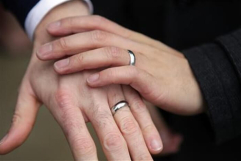Tens of thousands of people held rallies in various parts of Mexico last week to protest against same-sex marriage and a proposed law that will provide girls access to contraceptives even without parental consent.
Under the slogan "Mexico is One for the Children," about 80,000 protesters asked the Mexican government to respect state constitutions that define marriage as one between a man and a woman, according to LifeNewsSite.
The nationwide protest took place last July 25 after Mexico's Supreme Court followed the US in legalising gay marriage throughout the country, ruling that restricting marriage between a man and a woman is now unconstitutional in all states of the country.
The protests took place in Mexico City, Monterrey, Guadalajara, Culiacán, Los Mochis, Aguascalientes and Ciudad Juárez.
"They are undermining the rights we have as family. I want the opportunity to raise my children according to my beliefs and to what I want for them in the future," said Gabriela Dominguez, one of the protesters.
"We are not against any person, we are against this Supreme Court imposition," said protest organiser Sofia Miranda. It "opens the door to gender ideology and will destabilise our society and damage our children. This is what we don't want."
Before the Supreme Court ruling, gay marriage was prohibited in 29 of the 31 states in Mexico, according to Reuters. Mexico City, which is not a state, allowed same-sex marriage in 2009. Coahuila and Quintana Roo have also legalised same-sex unions.
The marchers also railed against a proposed law being considered in the Mexican Congress, which will ensure that all women will have "access to contraceptive methods" even without parental consent in the case of young girls.
All children, the proposed legislation said, have the right to intimacy and should not be discriminated against based on sexual preference.
"We are asking for the right to educate our own children," said Adriana Ojeda of the movement Si Es Mi Hijo Yo Lo Educo (If it's my child I will educate him/her). "Mexico has signed several international treaties which guarantee us this right. The [new] law is violating them."
Seven states have not approved the law and are asking for modifications to ensure parents' rights, said Ojeda.















